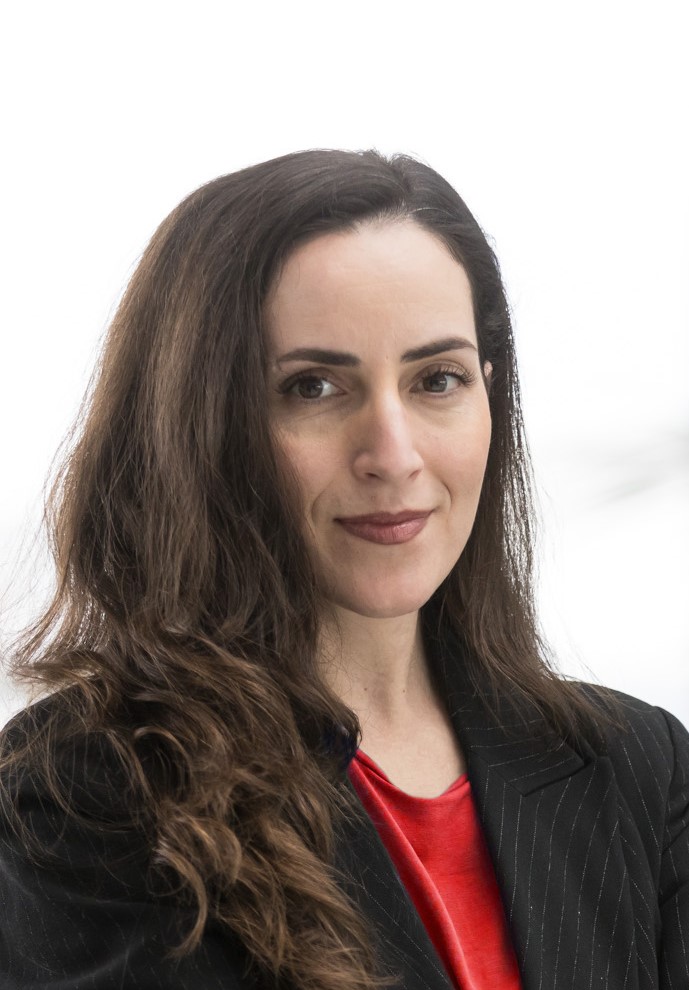Respect for human rights: Companies are bearing responsibility

There are 50 million people worldwide living in modern slavery – that is 10 million more than five years ago. This shocking statistic was published by human rights organization “Walk Free” just recently. The organization lays part of the blame on companies in industrialized countries, which benefit from forced labor through supply chains. This is a topic that Jessica Mannocchi and Erik Siems, appointed by the Managing Board as SMA’s human rights officers, care deeply about. In this interview, they explain what their role entails and what SMA is doing to ensure respect for human rights at the company and in the wider supply chain.
Jessica, Erik, from your point of view, what is the role of companies in industrialized countries when it comes to respect for human rights worldwide?
Erik Siems: Because of the number of scandals that are repeatedly being uncovered, such as in the textiles industry for one, companies are having to be held much more accountable for the effects of their actions in the supply chain. So, it’s only right that regulatory requirements are increasing worldwide. In Germany, these requirements have been enshrined specifically in the Supply Chain Due Diligence Act, which will also apply to SMA starting 2024. Among other things, it recommends the appointment of human rights officers in companies.
Jessica Mannocchi: The people who are being forced to work in the supply chain for low pay or in inhumane conditions are paying the price for the availability of cheap goods in industrialized countries. That’s why it’s so important to establish transparency and to call attention to abuses. A lack of transparency causes disaffection and distance on issues for which companies and consumers bear a shared responsibility. We can do better than this, and the phrase “where there’s a will, there’s a way” is even more true when it comes to exercising corporate responsibility than anywhere else.
What exactly does your role as SMA human rights officers involve?
Jessica Mannocchi: Our human rights strategy is anchored in the SMA group’s global sustainability management, which I’m responsible for as Head of Sustainability. My responsibilities as human rights officer involve coordinating and overseeing the implementation process for the respective requirements. In addition to the requirements under the German Supply Chain Due Diligence Act, these also include the minimum safeguards as part of the EU Taxonomy Regulation and the implementation of the Corporate Sustainability Reporting Directive (CSRD). As human rights officers, we also monitor the effectiveness of the systems and measures in place, provide the Managing Board with regular updates on how we are meeting our due diligence obligations, chair committees and prepare reports.
Erik Siems: As Global Sustainable Procurement Manager, I focus on our supply networks. I coordinate and monitor the implementation of legal requirements in the supply chain, assist Jessica with formulating the human rights strategy, prepare internal reports on all the relevant issues for the Head of Global Strategic Procurement and the Managing Board, and participate in exchanges and best practice meetings to share our knowledge with other companies and simultaneously learn from them as well.
SMA purchases goods from all over the world. How is it possible to ensure that human rights are respected in the supply chain?
Erik Siems: We have implemented an entire range of measures to make our purchasing practices more sustainable. In our SMA Business Partner Code of Conduct, we have formulated our standards and expectations for our suppliers and other business partners when it comes to upholding human rights and fair working conditions as well as other key matters. The Code of Conduct is binding for all suppliers as part of the general terms and conditions. Our suppliers also undertake to pass on these requirements in their supply chains. We also use supplier risk software in Purchasing to monitor our suppliers. If suppliers breach any requirements, the risk tool will flag the breaches. We will get even more detailed information from an in-depth supplier risk assessment, which we are planning to complete this year and will make part of our human rights strategy.
If we identify risks or suggestions for improvement, we get in touch with the relevant suppliers and work with them to formulate countermeasures and oversee their implementation. In 2022, we identified 81 areas of potential improvement for 15 suppliers in the area of human rights and initiated appropriate measures. Since last year, we’ve also been using an ESG score for awarding new orders. Our suppliers are rated on their ESG performance by an external service provider. It’s important that we see the transformation of our supply chains as a continuous process and that we involve both our colleagues and our suppliers in the process.
SMA is represented by subsidiaries in twenty countries on six continents. How do you ensure that all SMA companies comply with human rights requirements?
Jessica Mannocchi: Upholding human rights holds a huge amount of importance, not just in the supply chain but also within our company. Human rights also encompass rights such as fair pay, workplace safety, freedom of association and assembly, and non-discrimination. In 2022, the SMA Managing Board updated the SMA Employee Code of Conduct and enacted it worldwide. It sets out SMA’s Business Principles. The new Code of Conduct places greater emphasis specifically on our commitment to holistic sustainability and the importance of upholding human rights. It creates a company-wide uniform framework that helps all employees consistently make the right decisions in the interests of the SMA Group. All SMA employees are bound by the Code of Conduct and have to complete mandatory training on it.
We have also implemented a risk management system for labor standards within our integrated management system and rolled it out worldwide. SMA subsidiaries are assessed by way of internal audits. The risks of failing to comply with legal requirements or self-imposed commitments vary from country to country. We have already audited the eight active group companies that were rated as either moderate or high risk. Based on the results, the audit team defined a series of improvement measures, and their implementation is being monitored using an IT-supported method. Using the findings as a basis, we are also formulating global standards for specifying and standardizing working conditions. We have set ourselves the target of integrating all 21 active SMA companies in the risk and monitoring system by 2025.
What role will the SMA Human Rights Council that you set up recently play
Jessica Mannocchi: All corporate functions that handle human rights matters at SMA or are responsible for implementing the requirements of the German Supply Chain Due Diligence Act in the company’s operations are represented in the Human Rights Council. The Council is where we will oversee the implementation process and keep a check on the effectiveness of the measures we put in place. We will discuss any challenges and prepare decision proposals for the Sustainability Committee, which oversees the implementation of SMA’s sustainability strategy and makes decisions on key sustainability issues at the company. Our CEO Jürgen Reinert is Chair of the Sustainability Committee.
What can employees, suppliers and other stakeholders do if they suspect human rights abuses at SMA or in the wider supply chain?
Erik Siems: The first thing employees can do is speak directly with their line managers or call the internal compliance helpline. External stakeholders or employees who would like to remain anonymous have the option of contacting the SMA Speak-Up Line through our website. This is a whistleblower system that is operated by an external provider. Messages are treated with the utmost confidentiality, and employees certainly shouldn’t fear any punishment for reports they make in good faith.
Jessica, Erik, thank you very much for talking to us.



Feel free to contribute!